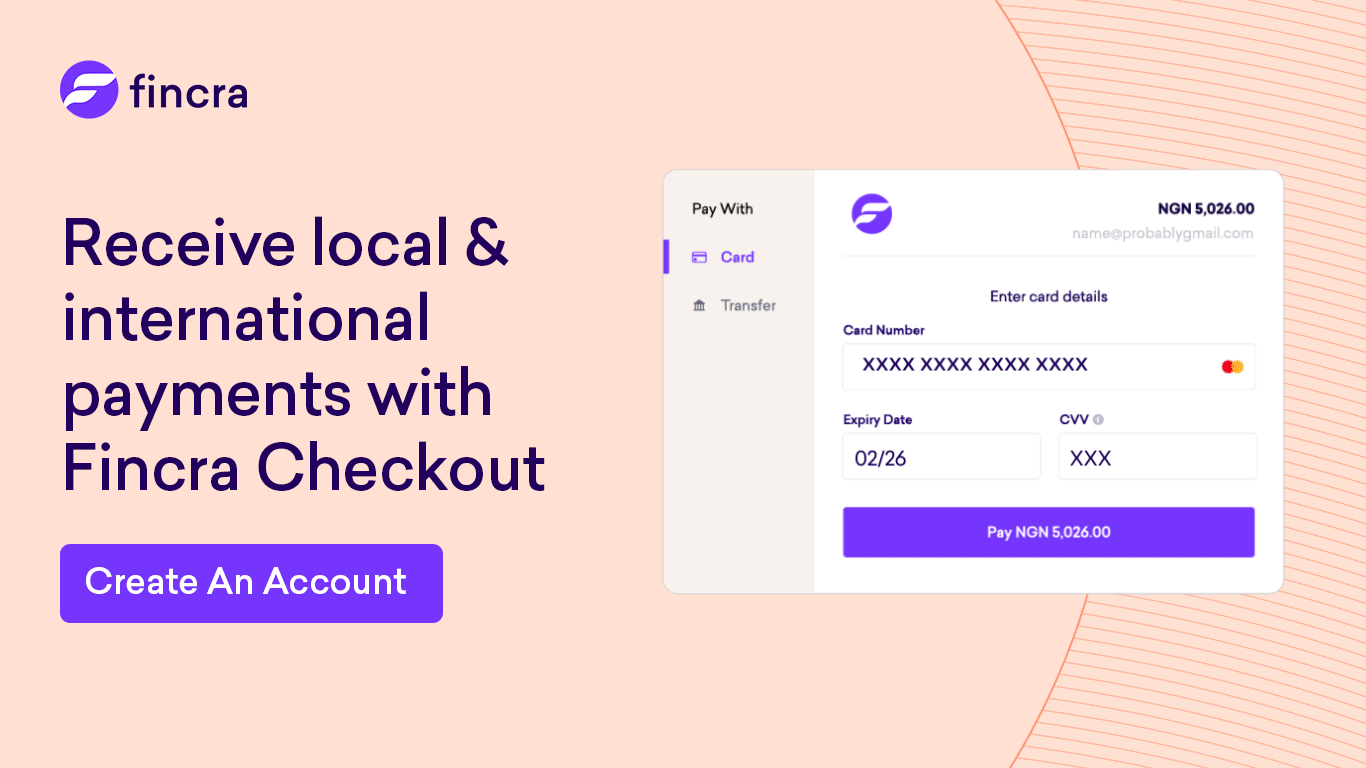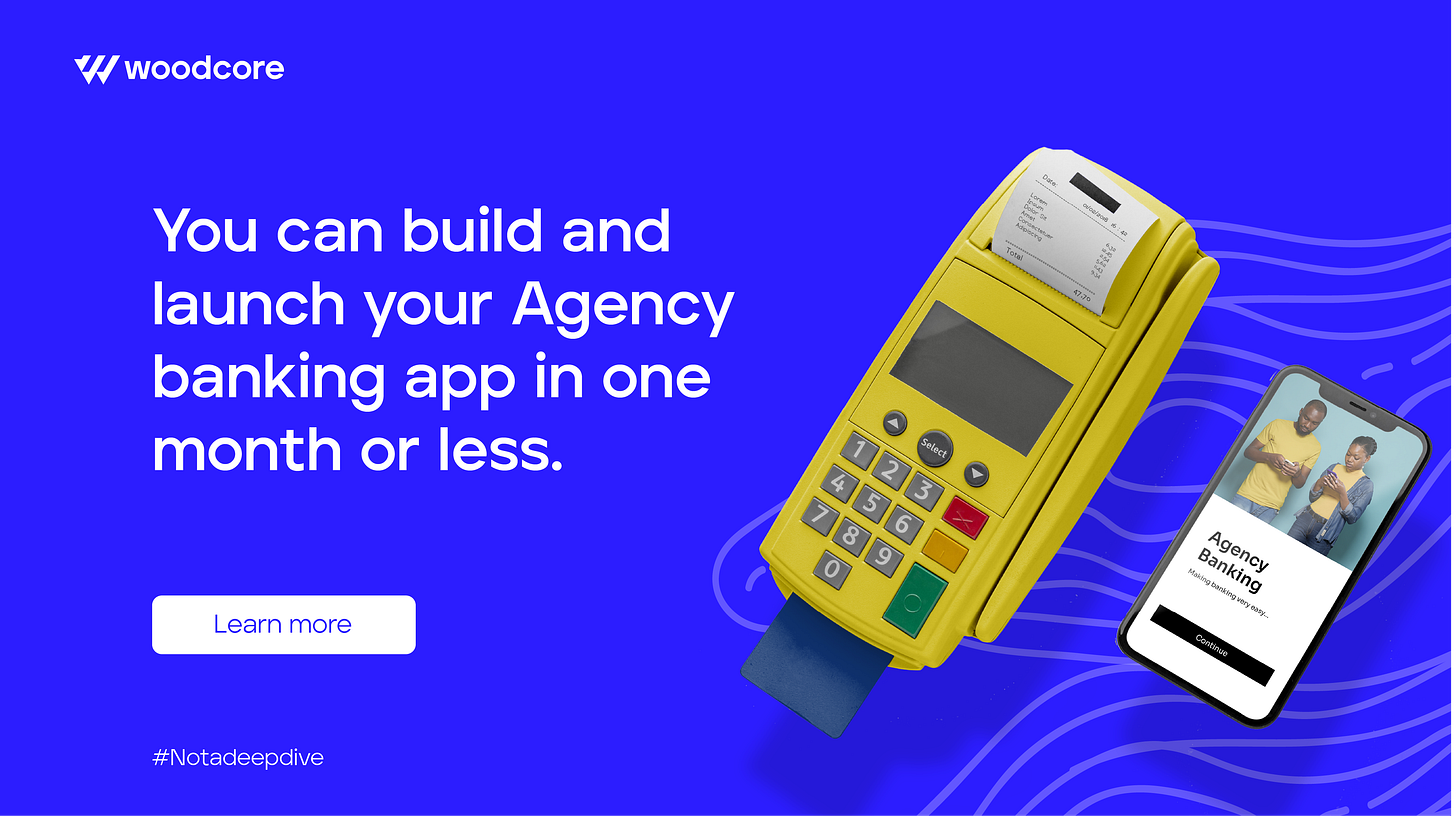Poverty reduction in the mud
Inevitable conversations on Nigeria’s economy
Today’s Notadeepdive is 826 words, a 4-minute read. Sign up here.
Poser: How has Nigeria fared in its promise to lift 100 million people out of poverty?
The word for today is share, share and share!
This newsletter is brought to you by Fincra and WoodCore. Fincra provides reliable payment solutions for fintechs, online platforms and global businesses. WoodCore is a lightweight cloud banking platform that enables fintech, digital banks, and payment service providers to create their own products.
If you missed Friday’s newsletter on layoffs in the tech sector, catch up here. If you’re an African who has experienced a layoff at Meta and you’re open to talking about it, please send me an email: Olumuyiwa@notadeepdive.com
TOGETHER WITH FINCRA
Payment collection just got easier on Fincra! Receive payments from your customers via debit/credit cards or bank transfers and settle these payments to your Fincra wallet or your bank account.). As a business, you only need to create easy-to-share payment links from the Fincra merchant portal or embed payment buttons on your online platform to gain access to Fincra Checkout; no coding is required.
I’ve written a lot about Nigeria’s economic issues: fuel subsidy, our inability to meet OPEC’s quota and a worsening FX crisis. Across all these subtopics, the central theme is that things are really going to shit. If you’ve lived in Nigeria long enough, then you’re familiar with that feeling; ours is a country—with the exception of a few years—that always feels on the brink. Yet, in the last six or seven years, most people, save for Tolu Ogunlesi, agree that things have gotten worse.
These days, reading about Nigeria is depressing, and writing about it doubly so. It’s why I often wonder if I should avoid the topic of the Nigerian economy altogether. One doesn’t always want to be the bearer of bad news; yet, with the 2023 elections around the corner, there’s a responsibility to say things how they are.
In every other election year, it’s commonplace to hear Nigerians lament about how our politics isn’t issue-based. Not this year though, everyone who goes to the market, the grocery store, or pays for anything at all knows the economy is the focus of 2023.
That said, buckle up and let’s talk about poverty reduction and why we’re struggling to make any meaningful progress in our move to lift 100 million people out of poverty.
Our plan to reduce poverty is dead on arrival
In June 2021, Buhari talked about his desire to lift 100 million Nigerians out of poverty. He doubled down on the promise in October of the same year. It’s an important promise that affects the lives of real people; 4 out of 10 Nigerians live below the poverty line of $1.90 per day. (Nigeria’s poverty line is estimated at 137,430 Naira per person per year). A further 3 in every 10 Nigerians spend less than $3.20 daily. Translation: 7 out of 10 Nigerians are either extremely poor or just one small shock away from falling into extreme poverty.
Buhari, despite his promises, has made moves that have worsened poverty. Two economic recessions have made any sort of real growth hard to come by for over five years. And the Covid-19 pandemic pushed another five million people into extreme poverty. Inflation has worsened today’s global realities; the poverty line will be adjusted to around $2 to reflect the global rise in prices.
Why has Nigeria made so little progress in reducing poverty? Since 2014, our population has been growing faster than our economy. The other fiscal factors responsible for our continuing poverty—revenue problems, an insistence on subsidy, disastrous FX policies— have been extensively discussed in previous newsletters, we’ll do well not to rehash them.
“Between 2000 and 2014, Nigeria enjoyed a period of sustained expansion, during which the economy grew by around 7 per cent per year, outstripping the estimated annual population growth rate of 2.6 per cent. Yet real GDP growth dropped to 2.7 per cent in 2015, then -1.6 per cent in 2016, as the decline in global oil prices induced Nigeria’s first recession in almost two decades (Figure 1). Growth has not recovered subsequently.” - World Bank (May 2022).
Beyond rightly bashing Buhari, when we talk about the 2023 elections in Nigeria, we must also pay attention to state and local governments. According to the World Bank, delivering key public services is crucial for poverty reduction and very few states can do this.
Many states in Nigeria exist only to receive federal allocations and pay salaries, and the slightest macroeconomic shock leads to months of salary delays for workers. Just this week, subsidy deductions to the Federation Account Allocation Committee will lead to nonpayment of pensions across some states. Other states are implementing salary reductions are now a way of dealing with these shocks. The only way out of this fiscal cliff is to have states that don’t depend majorly on federal allocations to survive.
Where do we go from here? Nigeria desperately needs to grow its economy over the next ten years, and that GDP growth needs to outstrip its population growth. Instead of 2 recessions and less than 2% GDP, Nigeria needs single-digit inflation figures and GDP growth of around 5-6% per year.
Yet, growth alone may not be enough to reduce poverty. Income inequality remains high in Nigeria, even during the periods of relative prosperity leading up to 2010. Policies like fuel subsidy and border closure are not only anti-people but anti-poor. One argument is that removing fuel subsidies will reduce income inequality.
In the end, the debate about whether or not growth alone can solve Nigeria’s poverty problem feels like a luxury. With the sky-high headline and food inflation and an economy that is barely chugging along, we need all the growth we can get while pursuing policies that actually work in reducing rural poverty. Until then, Nigeria will not only fail to lift its people out of poverty, it will continue to push many more into extreme poverty.
TOGETHER WITH WOODCORE
Banking has progressed outside the four walls. Multiple POS agents can be found in every nook and cranny, ready to provide immediate financial solutions. Banks utilize agency banking to save money, expand their customer base, build brand awareness, and improve customer service.
Woodcore provides a flexible banking infrastructure on which you can quickly construct and launch an agency banking business. You'll learn everything you need to know to make this a reality in this use case.







